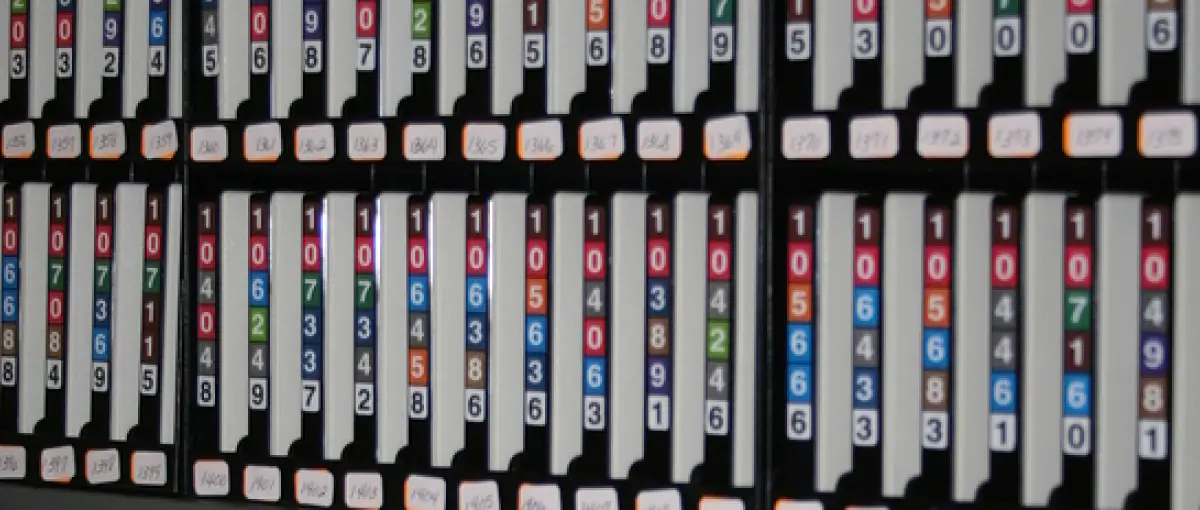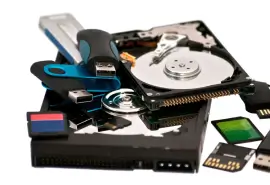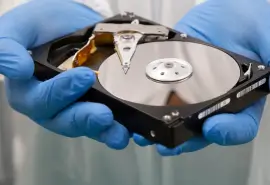Businesses with large servers and serious data storage systems often back up critical data with tape cartridges. While there is an overall trend towards virtual systems for long-term storage, data tape cartridges still offer a number of advantages over HDD-based systems; tapes are inexpensive, durable and dependable. Some formats can hold a tremendous 1.5 terabytes of uncompressed data, and many modern businesses simply have tapes built into their everyday operation.
However, proper storage is a fundamental component of any data tape archive. To make sure that your backups are available when you need them, make sure to keep your tapes in an appropriate environment.
A proper tape storage center should have controls for:
Humidity - According to spec sheets from major tape manufacturers, optimal humidity for archival tape storage is around 20-80 percent. High humidity can lead to water damage, while low humidity levels promote oxide loss and tape decay. One of the most common mistakes that businesses make when setting up tape storage rooms is to guess humidity levels or ignore them entirely. Keep your tapes safe by using a hygrometer or humidity indicator cards to monitor your storage environment.
Temperature - Extreme heat can lead to stretched tape or melted plastic components, which results in at least partial data loss. Manufacturers recommend an operating temperature of 50 to 113 degrees Fahrenheit and a short-term storage temperature of 61 to 90 degrees Fahrenheit. For long-term storage, you should keep your tapes at room temperature. Some research suggests that extremely cold temperatures can be as dangerous as high temperatures, so take appropriate precautions to avoid either extreme. Tapes should never be kept near heating or cooling vents.
Sunlight - While most data tape cartridges have heavy plastic components to prevent sunlight from damaging tape, you should still understand the potential dangers of sun exposure. UV light can quickly damage sensitive data tape, and UV exposure does not always create visible symptoms. Fortunately, this is a fairly easy environmental factor to control. Keep your tapes in a room without windows or shutter the windows to prevent excessive exposure.
Contaminants - LTO tape is thin, with LTO 5 tape measuring only 6.4µm. As is the case with any thin magnetic media, contamination plays a major role in component decay and damage. While you do not need to maintain Cleanroom standards to keep your tapes safe, you should keep your media in a relatively clean environment and use filtration to prevent dust and other contaminants from affecting your tapes. Make sure that your business's employees understand the potential dangers of media contamination. Establish clear media handling procedures. Fingerprint oil can prevent some tapes from reading properly, so your employees should know to never touch exposed tape components, especially when a tape experiences spooling issues or other physical media failures. Environmental controls will help to extend the storage life of your tape cartridges, but even in perfect conditions, all tapes eventually lose data due to decay and oxide issues. Check your tape cartridge backups every few years or months (depending on your backup schedule) to make sure that they are functional. If your business stores mission-critical data on tape cartridges, consider migrating your library to a virtual tape library (VTL) or another set of tapes. Secure Data Recovery Services offers tape data recovery, data migration, tape conversion and related media services for LTO, QIC, DAT, DDS, DLT, SDLT, S-AIT and dozens of other tape and cartridge formats. We offer high average recovery rates for all media, and our engineers have experience with dozens of backup applications and encryption algorithms. To start a case, call us today.







